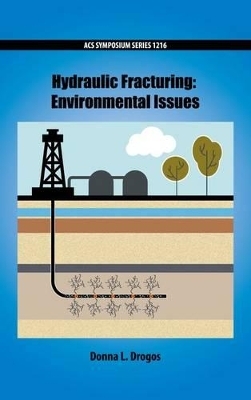
Hydraulic Fracturing
Oxford University Press Inc (Verlag)
978-0-8412-3122-1 (ISBN)
High volume hydraulic fracturing of deep shale deposits has transformed the oil and gas industry, catapulting the United States (U.S.) into the biggest oil and natural gas producer in the world, surpassing Russia as of June 2015. Hydraulic fracturing has been a game changer providing an important measure of energy independence for the U.S. As one expert put it, "Shale deposits are a gift from God." Hydraulic fracturing operations in North Dakota, in the Marcellus
formation in Pennsylvania, West Virginia, and Ohio, and in multiple other states are the subject of increased media, public, and regulatory attention. New potential shale plays across the U.S. are also being examined, including the Monterey shale formation in California where hydraulic fracturing is a
timely and significant environmental issue.
Concurrent with the increased development of unconventional hydrocarbon resources are concerns over perceived risks to the environment that have been raised at hydraulic fracturing locations throughout the U.S. These biogeochemical changes occurring in the millions of gallons of hydraulic fracturing wastewater creates a unique dilemma for the disposal and potential reuse of these waters. Traditional disposal options are now less available due to public concern over safety risks, so water reuse
is becoming the go-to solution, often requiring new treatment technologies to make the water suitable for reuse in the hydraulic fracturing process. This book focuses on these issues fracking poses as well as the solutions to make it viable.
Donna L. Drogos, P.E., holds a Bachelor's of Science degree in Civil Engineering from the University of California at Berkeley, 1988; a Master's of Science degree in Environmental Engineering from the Georgia Institute of Technology, 2014; and is a Registered Civil Engineer in the state of California. Currently, she is pursuing a Doctorate in Civil Engineering at the University of Wyoming. Her professional practice has focused on soil and groundwater contamination, groundwater remediation, and contaminant hydrogeology, and she has experience as a regulator, responsible party, and consultant for subsurface contamination sites.
Preface
1. Environmental Aspects of Hydraulic Fracturing: What Are the Facts?
2. Securing the Benefits: A Balanced Approach to Hydraulic Fracturing and the U.S. Emergence as a Global Energy Superpower
3. Using Discovery Science To Increase Efficiency of Hydraulic Fracturing While Reducing Water Usage
4. Naturally-Occurring Radioactive Materials (NORM) Associated with Unconventional Drilling for Shale Gas
5. Total Water Cycle Management for Hydraulic Fracturing in Shale Gas Production
6. Analysis of Ions in Hydraulic Fracturing Wastewaters Using Ion Chromatography
7. Emerging Environmental Impacts of Unconventional Oil Development in the Bakken Formation in the Williston Basin of Western North Dakota
8. The Legal and Economic Implications of Hydraulic Fracturing Bans
9. Overview of U.S. EPA's Study of the Potential Impacts of Hydraulic
Fracturing for Oil and Gas on Drinking Water Resources
10. Filling the Data Gap: What We Know (and Don't Know) about Hydraulic Fracturing and Acidizing in California
| Erscheinungsdatum | 02.11.2016 |
|---|---|
| Reihe/Serie | ACS Symposium Series |
| Zusatzinfo | 73 |
| Verlagsort | New York |
| Sprache | englisch |
| Maße | 161 x 231 mm |
| Gewicht | 476 g |
| Themenwelt | Naturwissenschaften ► Biologie ► Ökologie / Naturschutz |
| Naturwissenschaften ► Chemie | |
| Technik ► Bauwesen | |
| Technik ► Bergbau | |
| Technik ► Umwelttechnik / Biotechnologie | |
| ISBN-10 | 0-8412-3122-2 / 0841231222 |
| ISBN-13 | 978-0-8412-3122-1 / 9780841231221 |
| Zustand | Neuware |
| Haben Sie eine Frage zum Produkt? |
aus dem Bereich


